Clover is a very common lawn weed, it isn’t one of the nastiest of weeds to deal with but can affect your lawn health and is usually a great indicator that your lawn is lacking in nutrients. Clover is a very opportunistic weed.
Clover is a sign that your lawn is underfed, overwatered or has been mown too short. All of these issues can be sorted easily by practising proper lawn care.
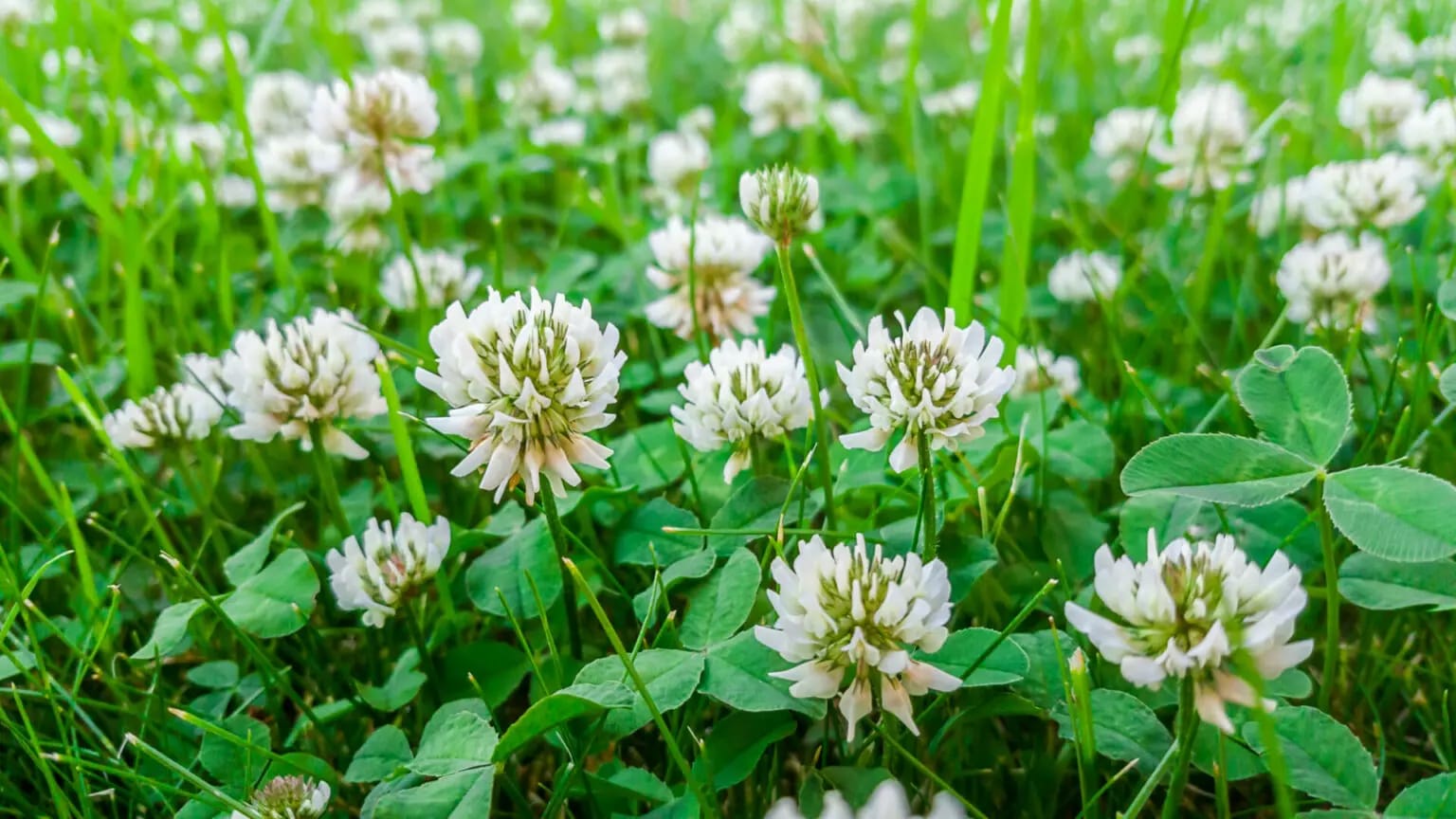
Types of Clover
- White clover – most common of all lover types. It has white to pink florets.
- Red clover – this is taller and bushier than the white clover, it has reddish in colour florets.
- Strawberry clover – appearance is extremely similar to white clover, but has smaller pink florets.
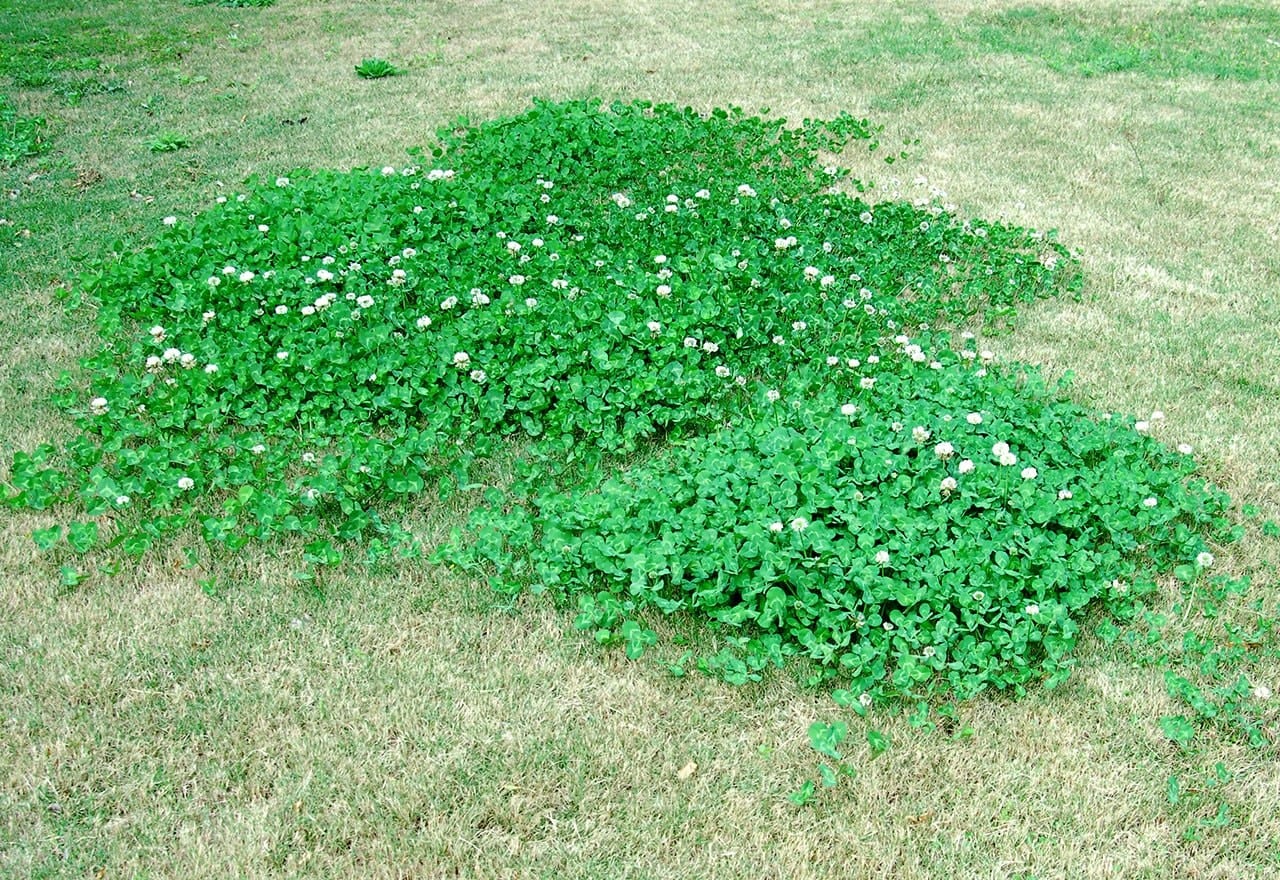
Understanding Clover in Lawn
Clover is a legume plant, much like Lucerne, alfalfa or beans. They draw nitrogen from the air and store it within it’s roots. Clover favours unhealhy, poorly fertilised lawns, so spotting clover may be an indication of a health issues with your lawn.
We always say “a healthy lawn will combat any weeds”.
In some cases, clover can be intentionally added to lawns to assist with drought. Some lawn lovers choose to live with a scattering of clover in their lawn, and depending on your grass type, the two may co-exist without being too much of an issue.
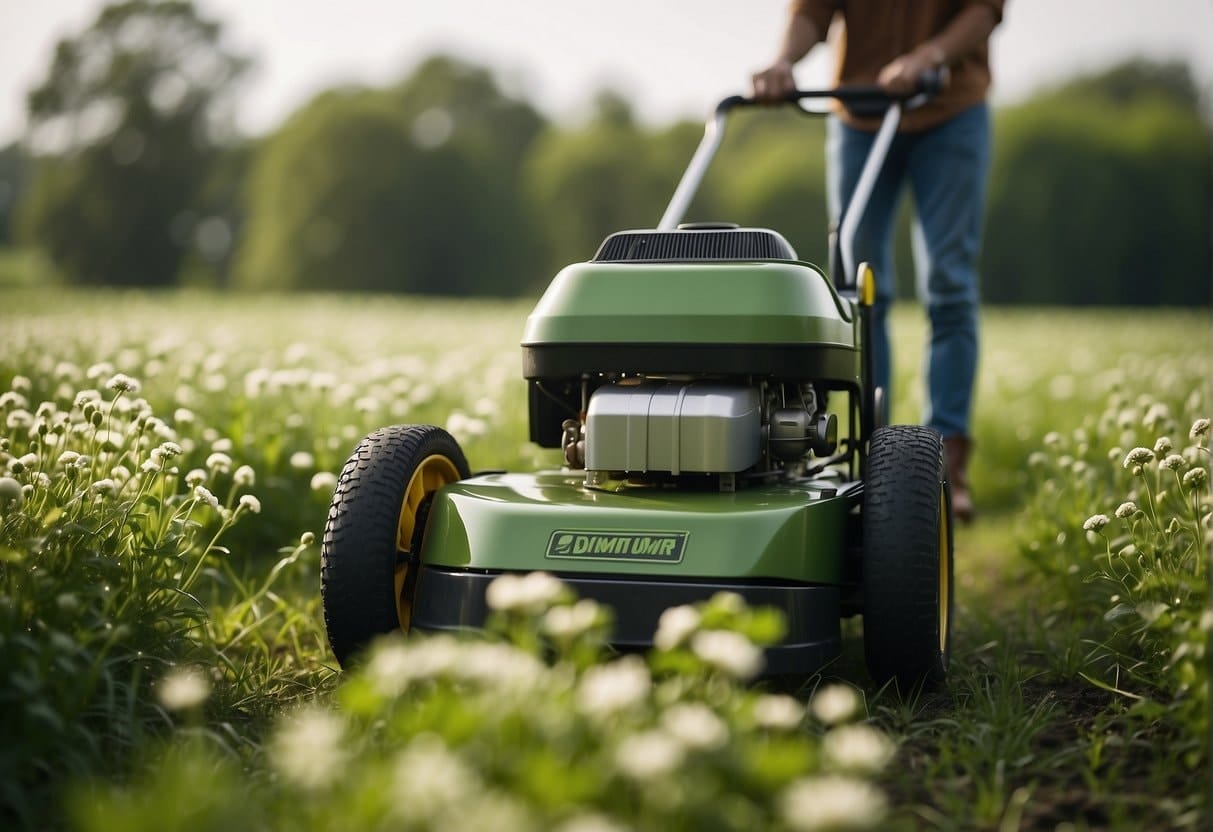
Preparing to Remove Clover
The easiest way to get rid of clover, is to look at your fertilisers and it’s nitrogen levels and look at using a higher nitrogen fertiliser to effectively deal with the clover. Our lawns all love nitrogen, while clover hates it. A good quality fertiliser like Lawn Solutions Premium Lawn Fertiliser is a must!
Otherwise, a thorough spray treatment will kill off the clover roots and the nitrogen will be replenished back into the soil. The following broadleaf herbicides are great for this, however be sure to read labelled rates and ensure the product you are purchasing is safe to use on your type of grass.
How to Get Rid of Clover in Lawn Naturally
Removing clover naturally means choosing the most environmentally friendly solutions to create a healthy lawn.
Effective natural clover control techniques:
- Nitrogen-rich Fertiliser
- Manual Removal – of only in small patches, ensure to remove all roots or the clover will return.
- Corn Gluten Meal – Spread 1.0kg of corn gluten per 10m2, then water well. Let the corn gluten dry naturally.
- Vinegar and Dish Soap – Add a few drops of dish soap to vinegar in a spray bottle, use that to spot treat the clumps of clover.
- High Mowing – Clover grows low to the ground, keeping your mowing height a little higher will help block the sunlight from reaching the clover.
- Organic Weed Killer
- Smothering – For small isolated patches of clover, stretching a rubbish bag or similar over the patch and securing the corners can help smother the weed.
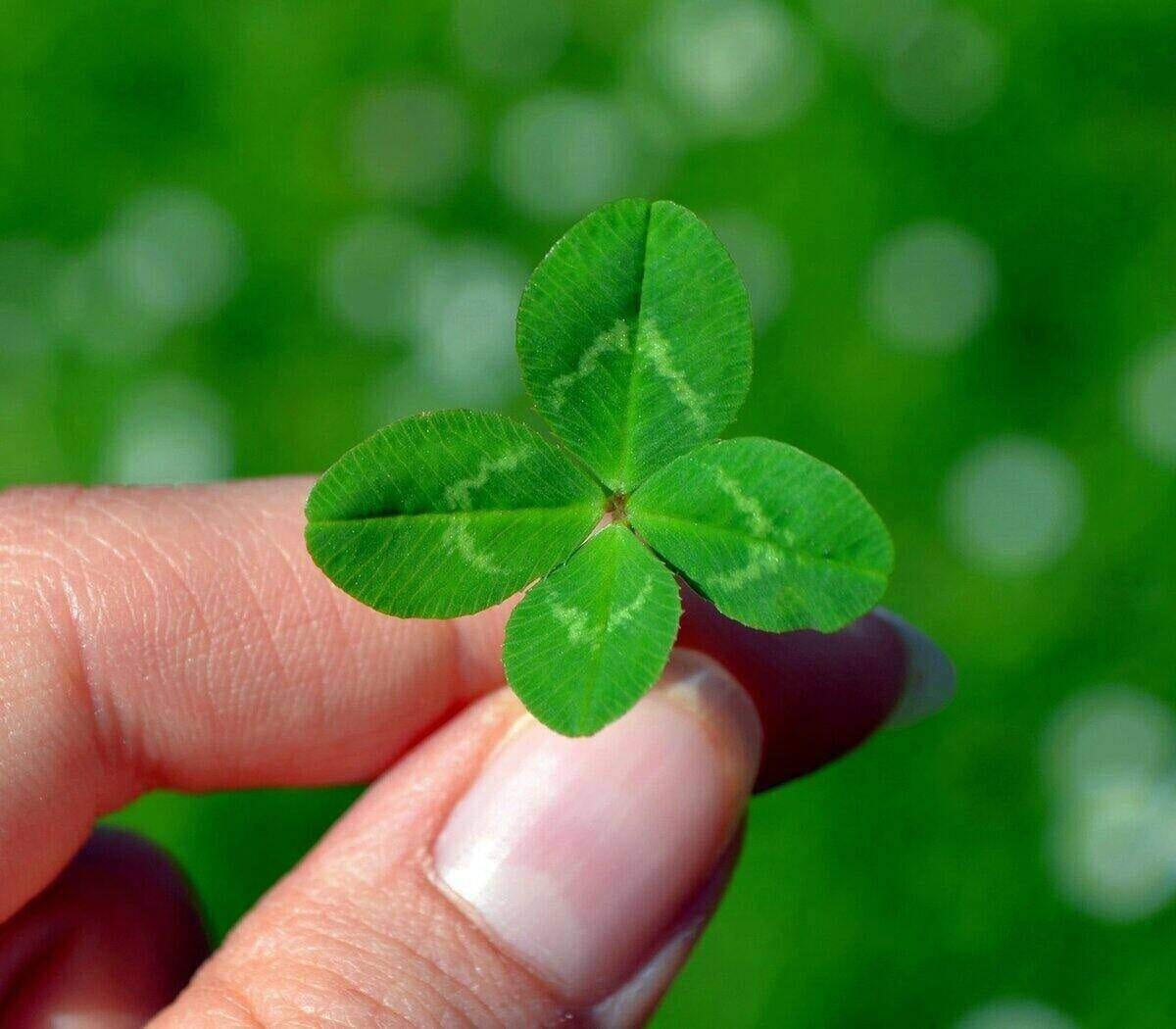
Prevent Clover Growth in Lawn
A healthy lawn will combat any weeds! Keep your lawn regularly maintained and have a fertiliser program in place! This will ensure your lawn remains healthy all year round and you beat the invasion of weeds.
- Pre-emergent herbicides like Oxafert can help prevent any weeds from germinating. This product is a must in a good fertiliser program.
- Proper mowing techniques
- Adequate watering practices
- Fertilising your lawn when required
- Keeping your soil compaction at a minimum, yearly spring renovations are great for soil health when preforming aeration techniques. Compacted soil can lead to clover weeds in your lawn.
Chemical Clover Control Options
The following broadleaf herbicides are great for this, however be sure to read labelled rates and ensure the product you are purchasing is safe to use on your type of grass.
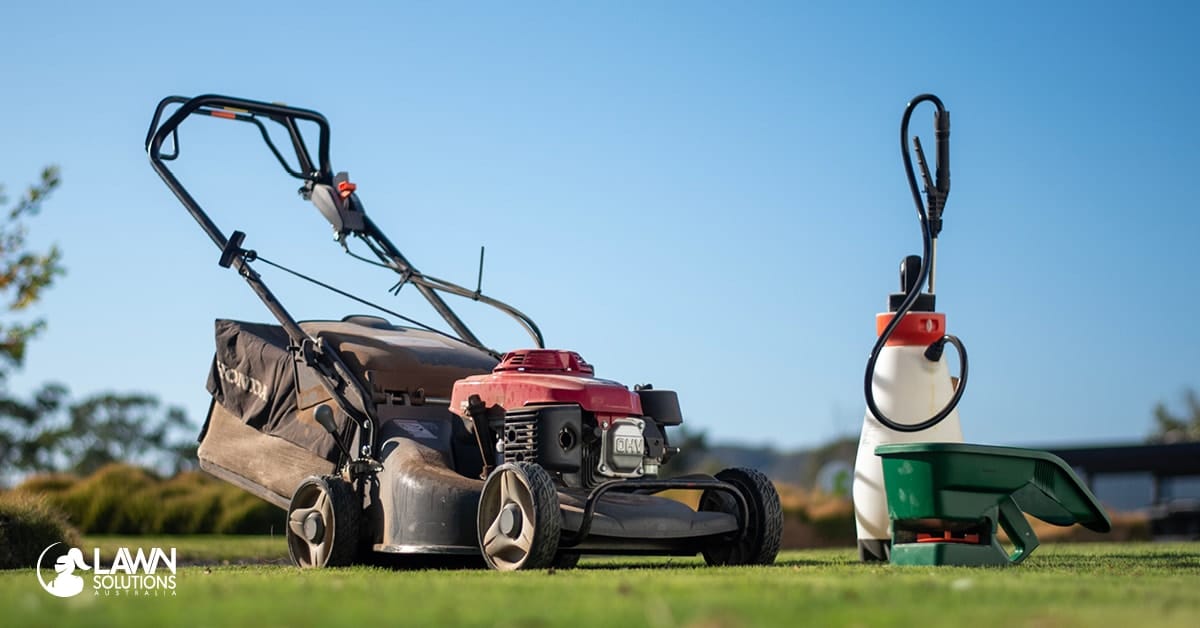
Frequently Asked Questions
1. Is clover beneficial for my lawn in any way?
In some cases, clover can be intentionally added to lawns to assist with drought. Some lawn lovers choose to live with a scattering of clover in their lawn, and depending on your grass type, the two may co-exist without being too much of an issue.
2. Can natural methods be as effective as chemical herbicides for clover?
Yes and no, the simplest and easiest way to remove clover is to keep your lawn fed and healthy! Keep up regular lawn maintenance.
3. What are the most stubborn types of clover and how to prevent clover?
The easiest way to kill clover, is to look at your fertilisers and it’s nitrogen levels and look at using a higher nitrogen fertiliser to effectivley deal with the clover. Our lawns all love nitrogen, while clover hates it. A good quality fertiliser like Lawn Solutions Premium Lawn Fertiliser is a must!

Conclusion
Overall, the key to keeping your lawn free of weeds especially clover is to practice proper lawn care. Keep you lawn fed, watered and maintaned regularly. Clover plants are an opportunistic weed and will invade when the nitrogen levels in your lawn are low. Keep your lawn healthy!